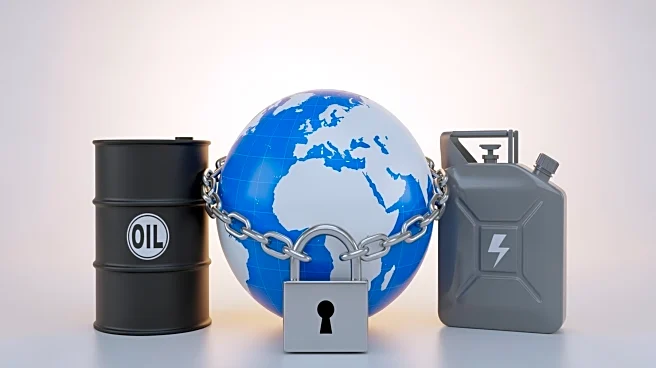What's Happening?
The European Parliament's energy committee has approved a proposal to ban imports of Russian gas and oil to the EU for a year, starting January 2026. The legislation received strong support from Members
of the European Parliament, with provisions allowing short-term contracts until June 2026 and long-term contracts until January 2027. The proposal includes measures to prevent circumvention, such as requiring detailed evidence of the gas's country of origin and prohibiting temporary storage of Russian-origin natural gas in EU facilities. The legislation also mandates prior customs authorization and verification for Russian oil imports.
Why It's Important?
This ban represents a significant shift in European energy policy, aiming to reduce reliance on Russian fossil fuels and enhance energy security. By cutting off Russian energy imports, the EU seeks to weaken Russia's economic power and its ability to fund military operations. The move is part of broader efforts to transition to more sustainable energy sources and reduce geopolitical risks associated with energy dependence. The ban could lead to increased demand for alternative energy supplies, impacting global energy markets and prices.
What's Next?
The European Parliament will inform its plenary chamber of the decision during its session on October 20-24, 2025. Negotiations with the Council are expected to follow, with the aim of finalizing the legislation. The EU will need to address potential challenges in implementing the ban, such as ensuring compliance and managing the transition to alternative energy sources. The legislation's enforcement will require cooperation among EU member states and coordination with international partners to prevent circumvention.
Beyond the Headlines
The ban on Russian fossil fuels marks a turning point in European energy policy, emphasizing the need for stringent enforcement and closing loopholes in existing regulations. It highlights the EU's commitment to reducing its carbon footprint and transitioning to renewable energy sources. The decision may influence other regions to reconsider their energy dependencies and adopt similar measures, potentially leading to a global shift towards more sustainable energy practices.









